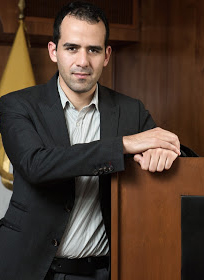An earlier version of this story failed to mention both winners of the 2020 Ericson Prize. The prize-winning papers by Grace Tran and Diego Tuesta Reategui are both profiled below, ordered by author last name. If you would like to jump directly to the details of a particular prize winner, you can do so here:
Congratulations to Grace Tran and Diego Tuesta, who were each awarded the 2020 Ericson Prize.
The prize is awarded for a paper that contains theoretical or empirical original research and that has the potential to grow into a refereed journal article. It can be either a course paper, a dissertation chapter, or part of a dissertation chapter.
“'We’re Dating After Marriage': Vietnamese Marriage Migrants’ Strategic Intimacies And Resistance To The Policing Of Marriage Fraud In Canada”
 Grace’s paper, “'We’re Dating After Marriage': Vietnamese Marriage Migrants’ Strategic Intimacies And Resistance To The Policing Of Marriage Fraud In Canada,” is part of her final dissertation chapter, which explores the unexpected trajectories of relationships between Vietnamese-Canadian men and Vietnamese women who agreed to participate in dam cuoi gia ('marriage fraud' arrangements).
Grace’s paper, “'We’re Dating After Marriage': Vietnamese Marriage Migrants’ Strategic Intimacies And Resistance To The Policing Of Marriage Fraud In Canada,” is part of her final dissertation chapter, which explores the unexpected trajectories of relationships between Vietnamese-Canadian men and Vietnamese women who agreed to participate in dam cuoi gia ('marriage fraud' arrangements).
“I was inspired to write this paper from a conversation that I had with one of my participants, a younger Vietnamese woman who confided in me that she was now dating 'for real' the man that had married her to help her secure Canadian residency, despite initially having no romantic feelings for him at all. I was struck by the intersecting discourses on economics, love, intimacy, organized crime, citizenship, and belonging that shaped and informed their relationship, and as I continued with my fieldwork, I realized that couples who end up 'falling in love' with each other through their active participation in presenting what they hope will be accepted as a real and genuine relationship to state authorities is not an uncommon occurrence.”
“Ironically, I finalized parts of this paper just as the country was going into lockdown due to the ongoing pandemic. The fact that cross-border couples and entire families are separated and unable to reunite for indefinite periods of time really highlights just how much is at stake in discussions of citizenship and access to state borders.”
Abstract: Drawing on narratives of three Vietnamese women who agreed to participate in dam cuoi gia (“fake wedding”) arrangements with Canadian citizens to enter Canada, this paper examines the paradoxical consequences of exclusionary marriage and partner migration border policies which see immigration bureaucracies criminalizing transnational marriages deemed as ‘inauthentic’ by the state. I introduce the concept of strategic intimacies to highlight the nuanced ways that Vietnamese women in dam cuoi gia arrangements resist the state’s policing for marriage fraud. Participants in dam cuoi gia arrangements deploy strategic intimacies by deliberately drawing on social and economic capital to perform intimacy, catering to classed and gendered ideals of love and marriage under manufactured settings, to navigate securitized and racialized border regimes. Ironically, through deploying strategic intimacies to present evidence of their ‘genuine’ marriages, participants developed romantic attachments and pursued long-term relationships with their sponsors. I argue that, in trying to control mobility and regulate marriage migration, the state sets the very conditions for and necessity of ‘marriage fraud,’ effectively blurring boundaries between what constitutes as ‘real’ and ‘fake’ for participants. This contribution prompts for a rethinking of the heteronormative and seemingly ‘neutral’ practices of contemporary securitized border regimes.
"Rethinking prosecutorial coordination: theoretical and empirical considerations”
 Diego’s paper is "Rethinking prosecutorial coordination: theoretical and empirical considerations.” The article, which took it’s most recent form as a course paper in Professor Catherine Evans' course, Guilt, Responsibility and Forensics (CRI 2140H), originated as part of Diego’s Master’s thesis at the Pontifical Catholic University of Peru. It was later presented as a working paper at the International Seminar: Criminal Justice in Latin America: Reforms, Practices and Effects at the National University of the Litoral, Argentina. The Ericson Prize is not the first time this paper has been recognized: Diego was a finalist in the 5th Academic Thesis Award on Human Trafficking hosted by the National Autonomous University of Mexico.
Diego’s paper is "Rethinking prosecutorial coordination: theoretical and empirical considerations.” The article, which took it’s most recent form as a course paper in Professor Catherine Evans' course, Guilt, Responsibility and Forensics (CRI 2140H), originated as part of Diego’s Master’s thesis at the Pontifical Catholic University of Peru. It was later presented as a working paper at the International Seminar: Criminal Justice in Latin America: Reforms, Practices and Effects at the National University of the Litoral, Argentina. The Ericson Prize is not the first time this paper has been recognized: Diego was a finalist in the 5th Academic Thesis Award on Human Trafficking hosted by the National Autonomous University of Mexico.
The paper “presents research findings and a novel theoretical argument about prosecutorial discretion.”
The research, which was funded by the British Embassy in Lima in early 2016, focuses on the case of Madre de Dios in Peru. Madre de Dios is a settlement in the Amazon “where artisanal small-scale gold mining and human trafficking for labor and sexual exploitation proliferate.” In the paper, Diego explores “the repertoire of justificatory arguments that prosecutors invoke to explain why certain cases of human trafficking for sexual exploration are prosecuted and why others do not.”
Diego conducted more than twenty interviews with state officials who undertake criminal investigations in Madre de Dios, who he describes as “actors with inside knowledge about the process of criminalization.”
"The study draws from Boltanski and Thévenot’s six orders of worth model. I discovered that prosecutors invoke a plurality of moral principles to decide which cases are worth prosecuting. Such moral principles not only underpin decision-making but also help holding the network of officials together. This plurality of moral principles has been overlooked by research on prosecutorial discretion from the Global North, which highlights efficiency as the main deciding principle."
Diego would like to thank Mathew Light, Mariana Valverde, Catherine L. Evans, Phillip Goodman, Vincent Chiao, and Jose A. Brandariz, and Maximo Sozzo “for their helpful comments and guidance in writing this article.” He also thanks George B. Zachary and Clara Núñez for the opportunity to conduct fieldwork in Madre de Dios and for their support in doing so.
Next story: Sara Fruchtman, Winner of the John Edwards Award


